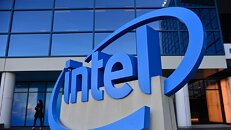
AAEON Unveils RICO-MX8P pITX Motherboard for Kiosks
Award-winning embedded solutions provider AAEON (stock code: 6579) has announced the launch of the RICO-MX8P, an NXP i.MX 8M Plus-powered fanless single-board built on the Pico-ITX Plus form factor. Utilizing the i.MX 8M Plus, the RICO-MX8P leverages a platform comprised of a quad-core Arm Cortex -A53 processor, a secondary core Arm Cortex M7, and an optional Neural Processing Unit (NPU) offering up to 2.3 TOPS of inference performance.
Equipped with an integrated Vivante GC7000 UltraLite 3D GPU, a dedicated VPU, MIPI DSI interface, and an HDMI 2.0 port, it is clear AAEON is positioning the RICO-MX8P as a candidate for multimedia applications, with digital signage, smart kiosk, and interactive Digital Out-of-Home (DOOH) advertising earmarked as potential uses. Further benefits to such use are evident from the board's support for APIs like OpenGL ES 3.1, Vulkan, and OpenCL 1.2, alongside its multiformat encoding and decoding capabilities.
Equipped with an integrated Vivante GC7000 UltraLite 3D GPU, a dedicated VPU, MIPI DSI interface, and an HDMI 2.0 port, it is clear AAEON is positioning the RICO-MX8P as a candidate for multimedia applications, with digital signage, smart kiosk, and interactive Digital Out-of-Home (DOOH) advertising earmarked as potential uses. Further benefits to such use are evident from the board's support for APIs like OpenGL ES 3.1, Vulkan, and OpenCL 1.2, alongside its multiformat encoding and decoding capabilities.



































